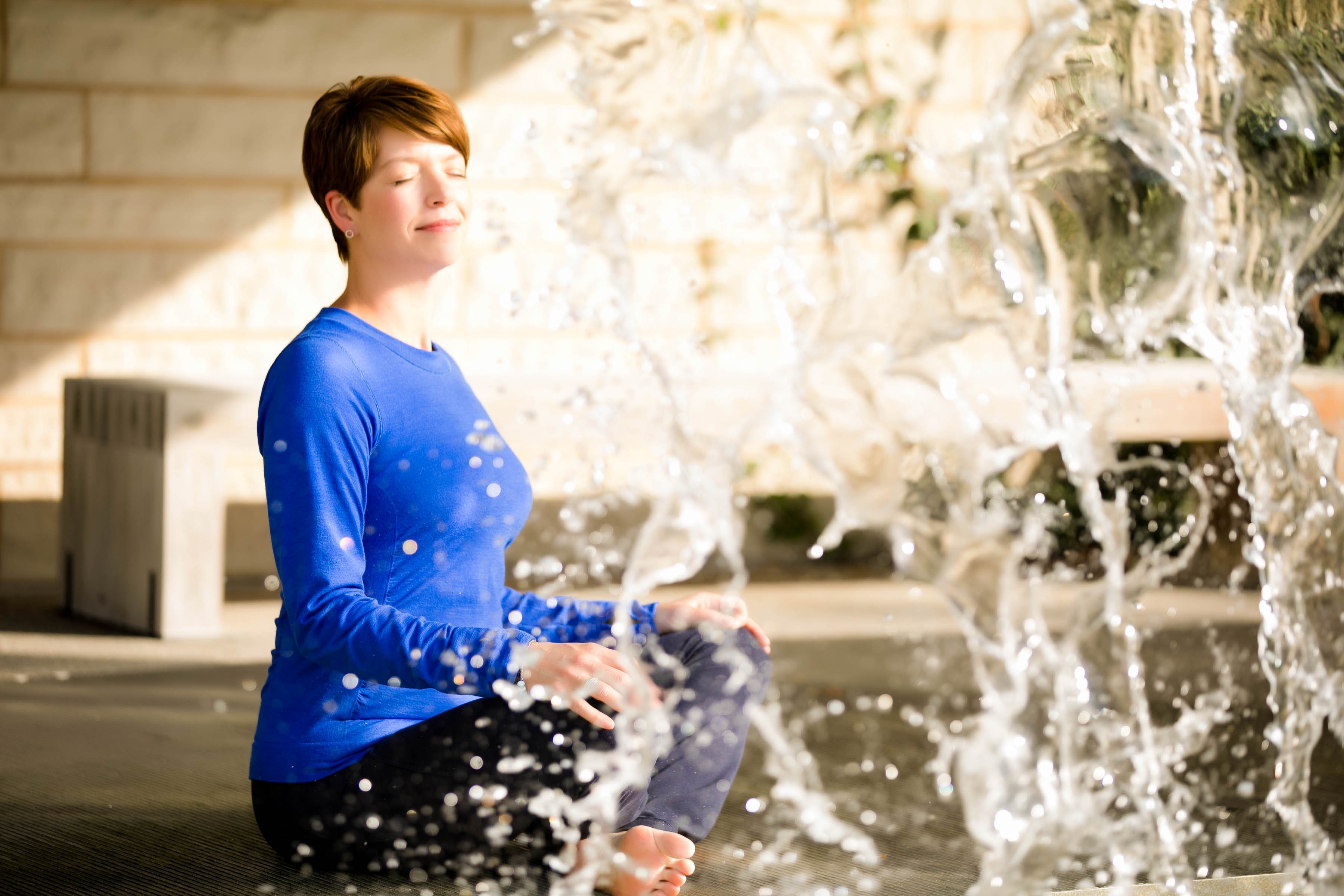Ah, santosha. Contentment. Sounds nice, doesn’t it? The second of the niyamas (personal observances) from Patanjali’s Yoga Sutra, santosha is essentially the opposite of desire, of lack, of feeling that we need things to be different before we can be happy. This niyama is about mastering the art of feeling at ease and at peace with yourself.
How often does, “I’ll be happy when…” cross your mind?
Even as dedicated practicing yogis, there is still probably a nagging thought of I’d be happier if when we practice. Whether it’s getting a different job, meeting someone new, losing weight, or being able to get ourselves into that yoga posture we’ve been working towards, there’s probably one or two things you think could make you happier or more content.
It is natural to want to grow and expand our minds and push ourselves towards a goal. That isn’t a bad thing – it just becomes bad when we base our entire sense of peace and happiness upon this.
The practice of yoga reminds us we do not need to look beyond ourselves for happiness and contentment. We have all we need and there are plenty of ways to uncover it on and off the yoga mat.
Santosha on the mat
Anyone who’s ever been to a yoga class knows the feeling; you’re working your way into a posture and you just can’t help but take a peek around the room to see whether you’re doing ‘better’ than someone else. Admit it – we’ve all been there at least once!
With an attitude of santosha, we can focus on the experience of yoga instead of the outcome. Asana is a double-edged sword. When practiced in a certain way it allows us to feel our bodies, our breath, our minds, and our hearts, and to merge these seemingly separate parts into a unified whole. But when practiced another way, asana can intensify unhealthy attitudes about our bodies and increase our desire to conform to unrealistic ideals and images in our minds. Instead of accepting our bodies as they are, we might think that spending more time on the mat will bring happiness with a perkier butt, flatter belly, or sculpted arms.
However, if we’re able to look past this noise and distraction to the true essence of the practice, we’ll discover that yoga promises so much more than these superficial rewards.
Rather than fixing what we believe is wrong with our bodies, a yoga practice can enhance our relationship with our bodies. Rather than constantly focusing on how our bodies look, we can instead explore how our bodies feel.
The next time you’re on your mat, notice what kinds of thoughts and emotions come up about yourself and your body. Feel what’s happening in the body. See if you can focus on simply feeling what comes up from moment to moment with no judgment, rather than having to do or achieve or change anything to make it ‘better’.
Instead of trying to look like the person next to you or the teacher on the screen, find the version of the pose that makes sense for your body. You may want to use a prop or go at a slower pace because that is what feels good to your body during that particular practice. When we practice with an awareness of the feelings that are presented to us at the moment, we can move away from comparison and possibly injury and towards a practice and postures where you feel relaxed, calm, grounded, and pain-free.
In your next yoga class or home practice – make the intention to appreciate yourself for what you are, how far you’ve come, and all that you have to look forward to. Your body will thank you and contentment will find you.
Santosha off the mat
Constantly chasing after a feeling, a physical possession, or a person can become exhausting after a while. Yes, of course, we’ll experience temporary joy or happiness once we’ve conquered what we wanted, but how long does it really last?
The promises we make to ourselves, like I’ll be a better person once I’ve done this, I’ll just lose ten pounds and then I’ll be ok, I’ll be happy when I get that job/relationship cause us to disregard the present moment. Instead of holding gratitude in our hearts and enjoying the blessings and gifts we have right now in the present moment, we are pulled into chasing and wanting more.
The things around us, our experiences, and our emotions are constantly changing as they are part of Prakriti or nature, but our true Self is completely unchanging. Who we really are and always will be is completely good enough already. In fact, it is the best gift we can give ourselves and the world.
Living a life that is authentic and true to YOU is the gift of santosha. This niyama is an invitation to be content with all that you are and all that you have because there is no one else who can offer the world what you have to offer.
Santosha offers us peace. We do not have to wait for happiness or search for something outside of ourselves. You have everything you need within you. Go and be YOU! You are worthy of love and belonging just as you are.
One of my favorite Brene Brown quotes from her book The Gifts of Imperfection reminds me of how I can practice santosha and move toward a life of wholehearted living. She writes, “Wholehearted living is about engaging in our lives from a place of worthiness. It means cultivating the courage, compassion, and connection to wake up in the morning and think, No matter what gets done and how much is left undone, I am enough. It’s going to bed at night thinking, Yes, I am imperfect and vulnerable and sometimes afraid, but that doesn’t change the truth that I am also brave and worthy of love and belonging.”


